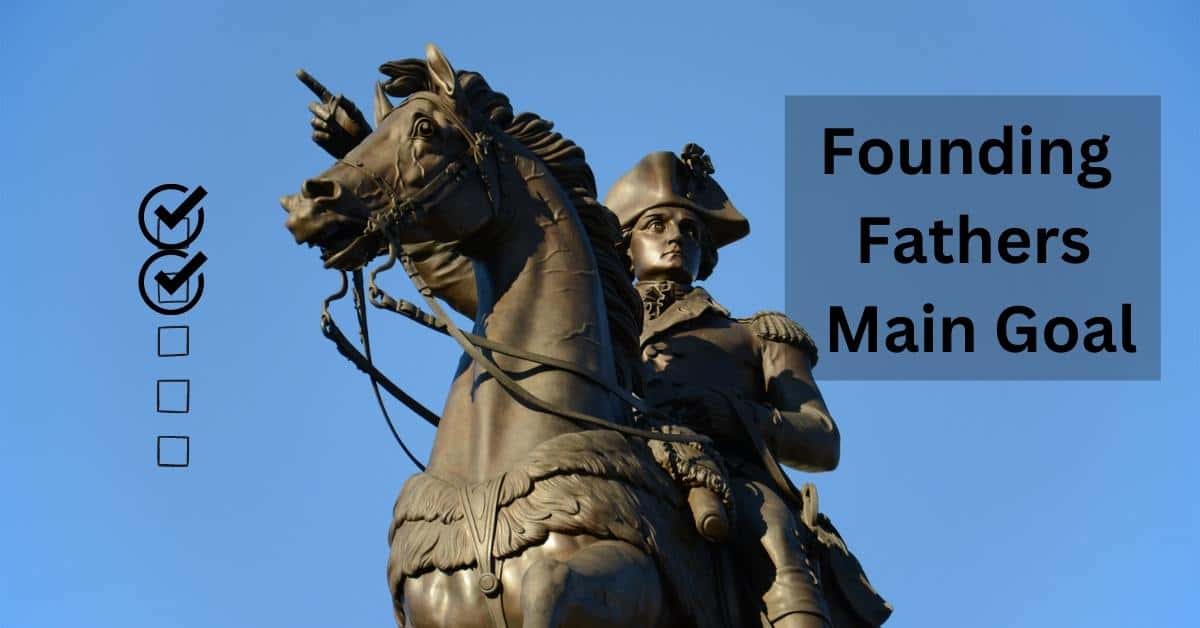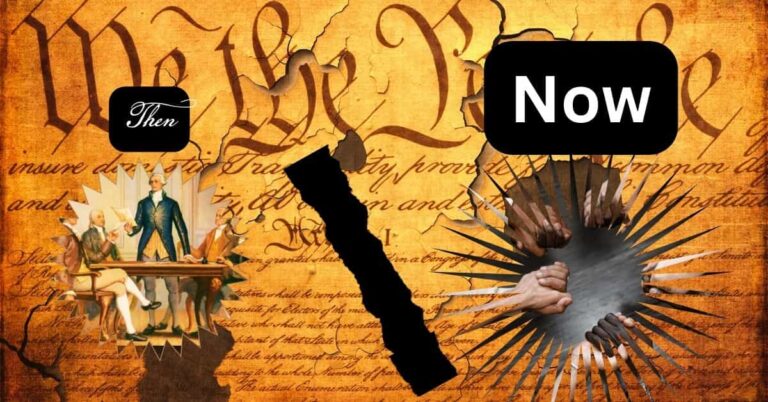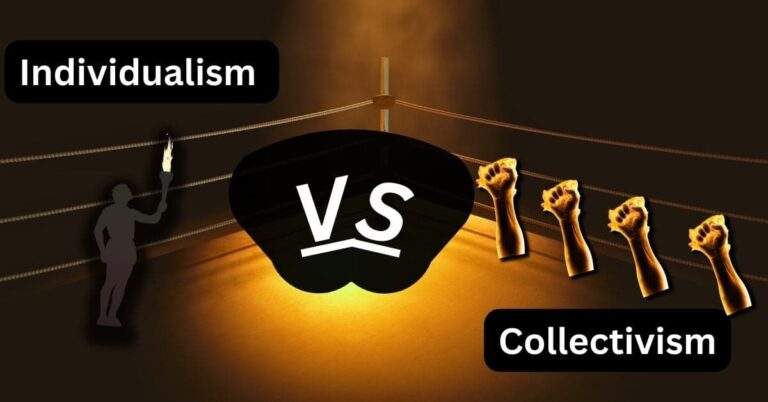When you start a project for school or at home, you have a goal for your finished product. Your vision needs to radiate. You’ll do anything to satisfy your thirst for greatness! The Founding Fathers felt the same way. They had a goal to change the trajectory of the United States.
Our Founding Fathers created a government to limit authority. They saw the awful effects of power and made it their goal to prevent overreach. For example, England suspended rights as habeas corpus. Also, the separation of powers limits authority in our 3 branches of government.
Obviously, there are more goals than the ones mentioned above. We are focusing on one main goal that shifted the Founders’ mindset closer to liberty. Continue below to find out why they didn’t want eternal prisoners of Great Britain.
If you’re wanting to know more about the main goals listed in the Constitution, LEARN MORE about the 6 goals listed in the Preamble.
Preventing Tyranny by Reigning in Authority
Do you have a bully at your work or school? You probably do.
They pretend to have authority. You experience anxiety when you see them. Wouldn’t it be great if there was only a way to prevent their authority? Or does that imaginary authority give them the courage to act out?
You must deprive them of that power.
Fortunately, the Founding Fathers denied complete authority from any one individual in government.
What is authority?
Authority is the ability to exert control over someone else. You must submit to that person if you’re their subordinate.
Teachers have authority. Bosses have authority. Your mother has authority.
We don’t always like what they have to say. But, sometimes it is a part of life.
It becomes a problem when authoritative figures start to abuse their power. Even your teacher, boss, or mother has to answer to someone. It is to their superior.
Absolute, or ultimate, authority is the scary version. That’s what the Founding Fathers wanted to prevent.
What does limiting authority do?
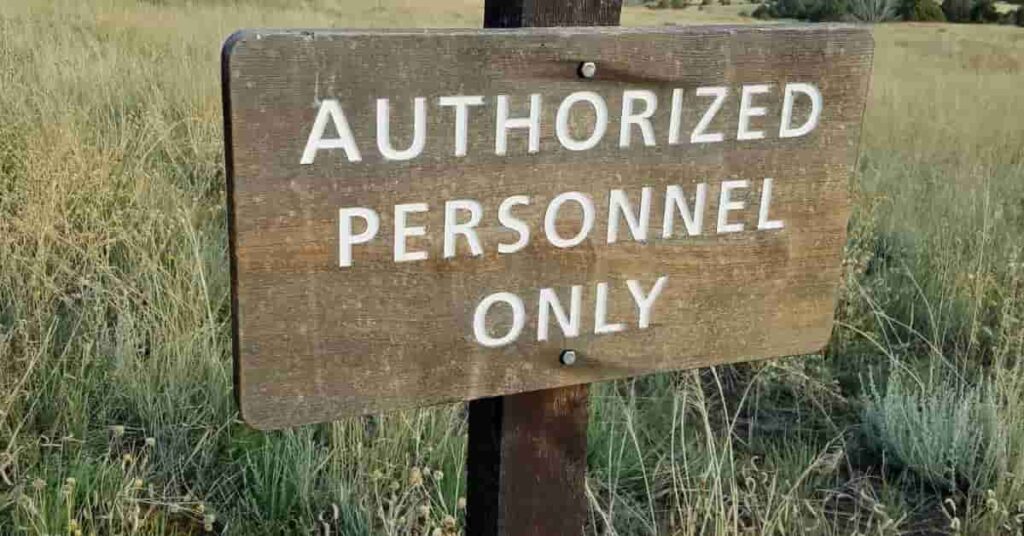
Limiting authority takes away someone’s power. I know you’re thinking “well duh!”
It is more complicated than that. Because people will not relinquish power that easily. Would you? You become accustomed to the perks.
If you’re living in a country with authoritarian regimes, people lose their autonomy. They forfeit their sense of self and their ability to think.
The lucky ones who escape have a hard time adjusting to not being told what to do. They’ve never experienced true liberty. It’s sad but true.
Our Founders limited authority so that wouldn’t happen. As a result, Founding Fathers designed a government for the “common good” of the people- not crazy power-hungry maniacs.
Although those types of individuals enter politics, they soon find out that gaining absolute power in the United States is a more difficult task than thought.
Few men in the world developed a government with that as the goal.
If you don’t remember, I’ll remind you. Americans begged George Washington to run for a third presidential term. But, he resigned because he didn’t want America to become a tyrannical monarchy. He limited his own authority by relinquishing power.
If you’re wanting to know how the Founders limited tyranny and authority, LEARN MORE by reading my article guarding against tyranny.
Habeas Corpus: A Reason for the Limitation Instituted
What is Habeas Corpus?
A person is held in captivity without formal charges brought against them. They never appear in a court of law.
To simplify, you are arrested for an offense. So, you’re sitting in your jail cell passing the time by looking out the window or counting the cracks in the wall.
But, you notice you’ve counted all the cracks and what seems hours have passed by. You start to wonder what is going on. Days pass and you’re still a prisoner.
If the above scenario happened, your habeas corpus right has been suspended.
You’re in perpetual confinement, which is where you don’t want to be.
Road to Founding Fathers’ Goal
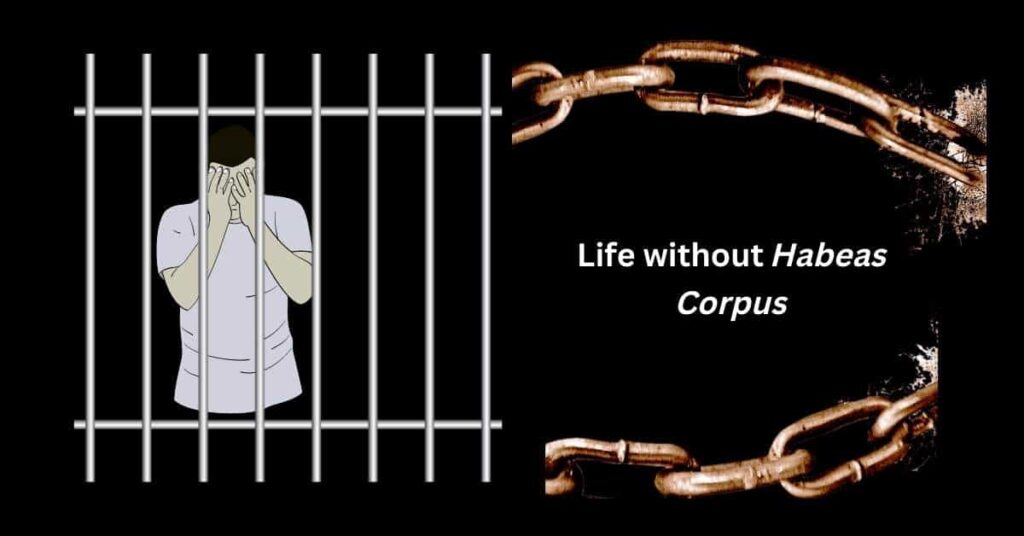
As shackled American POWs (prisoners of war) boarded ships bound for England, they didn’t know when they would return.
Meanwhile, American citizens lost their rights of habeas corpus at home. British Parliament and the Crown suspended them.
Founding Fathers watched in awe as they saw soldiers and townspeople disappear off the streets.
Something had to be done. All British colonists and subjects were guaranteed these rights since Britain passed the Habeas Corpus Act in 1679.
Continental Congress is credited with stating this:
“the subjects of an arbitrary government, deprived of trial by jury, and when imprisoned cannot claim the benefit of the habeas corpus Act, that great bulwark and palladium of English liberty.”
Habeas Corpus and the American Revolution – California Law Review
Continental Congress
These terrible conditions with Revolutionary POWs and Americans prompted long-term change.
After the conclusion of the war, the Founding Fathers limited authority by creating a new framework for government. One where tyrants- either in the legislature or President- didn’t have supreme power.
Conclusion
We don’t want to end up in a dark box wondering why we’re here. Absolute authority vested in one individual, or one group of people, will misuse that power.
You didn’t want to make political enemies with people yielding too much authority.
Authoritarians use their power to control your mind and suppress your thoughts. They silence your ability to question them.
They lock you up indefinitely. Liberty-loving folks have a right called habeas corpus to counteract these bad intentions.
You must know why you’re in handcuffs behind bars. You must demand clarification if you’re ever put in that situation.
The American colonists and POWs saw themselves in this position. But, the Founding Fathers said, “Never Again!”
Have you gone out for a night of fun and been arrested but don’t know why? Let me know your story.
What other ideas do you have on limiting authority?
J. Liberty
Now, that you learn about main goal for the formation of the U.S., LEARN MORE read my article about the importance of the Founding Fathers.
Featured Image: Bradley Pietzyk / shutterstock.com
